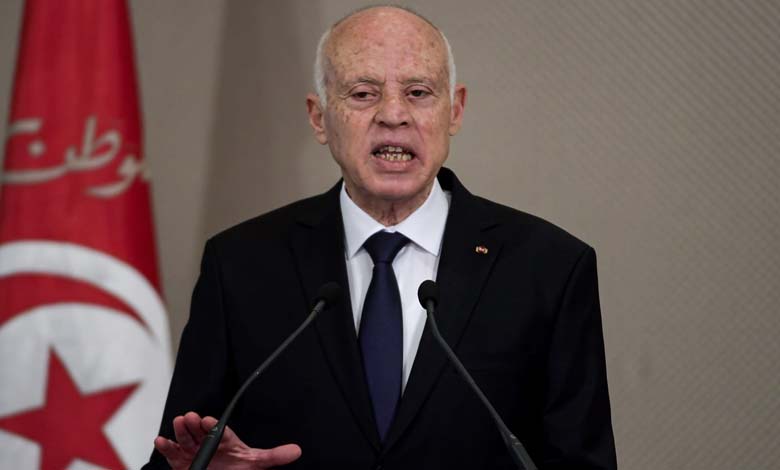Tunisia’s Brotherhood and the Gabès Anger: Saied exposes the paid propaganda voices

Tunisian President Kais Saied has once again lashed out at the Muslim Brotherhood, accusing the group of fueling unrest in the southeastern governorate of Gabès, where protests continue over industrial pollution.
-
Ghannouchi banned from travel and similar decision against Tunisia’s Brotherhood accused of ‘Terrorism’
-
Tunisia’s Muslim Brotherhood and The Forgotten Promise: Gabès Ignites Retroactively
During a meeting at the Carthage Palace with Parliament Speaker Ibrahim Boudrabela and the head of the National Council of Regions and Districts, Imed Dherbeli, Saïed declared that Tunisia had “overcome many challenges,” which, he said, has left “its opponents and conspirators confused and desperate.”
In a veiled reference to the Brotherhood, Saïed stated: “Those who receive foreign money to act as paid and frenzied mouthpieces have not realized — and never will — that their voices are rusted and no longer heard by anyone.”
-
They Will Not Go Unpunished: The Accountability Process Tightens the Noose Around Tunisia’s Muslim Brotherhood
-
Tunisia’s Muslim Brotherhood… Failed Attempts to Infiltrate Through the UGTT Crisis
He affirmed that “Tunisia will meet its date with history and success, for the Tunisian people have resolved to overcome all obstacles.”
The president praised what he described as the “deep awareness” shown by the people of Gabès and Tunisians in general, calling it an “unprecedented form of civic consciousness.”
He stressed the need for local residents and security forces to “stand united against those who seek to exploit the environmental catastrophe for their own purposes — purposes that are now obvious to all.”
Saied concluded that “free peoples cannot be defeated, and the Tunisian people will continue on the path they have chosen, rejecting anything short of complete liberation.”
-
The Ghannouchi Hunger Strike: A Desperate Attempt to Salvage What Remains of Tunisia’s Muslim Brotherhood
-
Four Years After the Fall of Tunisia’s Muslim Brotherhood: An End Mandated by the People
Toward structural solutions
The president said he was closely monitoring developments, adding that resolving the crisis “cannot be achieved through traditional approaches.” He emphasized that efforts are underway to find “urgent and temporary solutions to the pollution problem while developing a comprehensive national strategy to address it.”
Protests in Gabès, which began last week, have continued through Saturday, with residents demanding the dismantling of the chemical complex after repeated incidents of suffocation caused by toxic emissions.
-
Marzouki’s Rebellion Map: A Desperate Bridge for the Return of Tunisia’s Muslim Brotherhood
-
Tunisia’s Muslim Brotherhood and the Poison of Discord in Gabès Protests They Once Ignored
The Muslim Brotherhood quickly attempted to exploit the demonstrations, using their social media networks to incite clashes with security forces under false and misleading slogans invoking a so-called “new revolution.”
Former Foreign Minister Rafik Abdessalem, a leading Brotherhood figure and son-in-law of movement leader Rached Ghannouchi, claimed on his social media pages that “the next revolution will begin in Gabès.”
-
Tunisia’s Muslim Brotherhood Entrenched in Rumors: A Blade Without an Edge
-
Tunisia’s Muslim Brotherhood Pursues Internal Destabilization: What’s New?
Local reports indicate that over 100 people have been hospitalized in the region between September and October due to respiratory complications linked to pollution.
The Gabès Chemical Complex, located roughly 415 kilometers from Tunis in the Ghannouch area, provides employment to around 4,000 workers.












